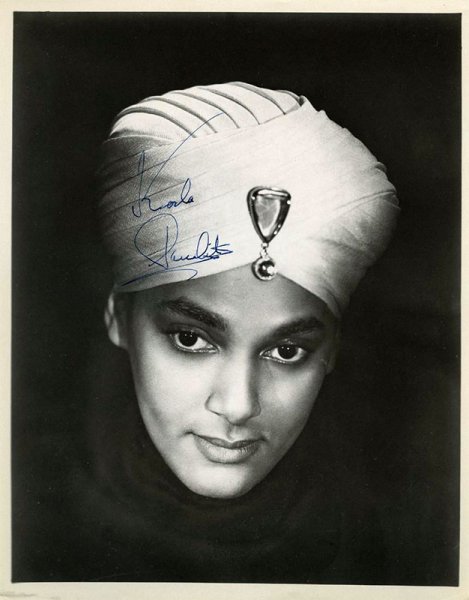17 octobre 2015 / 10 h 10 / Luna, le chat chantant
4 octobre 2015 / 12 h 42 / The Yabba
20 septembre 2015 / 14 h 44 / Chanson d’automne
15 petits degrés ce matin, une lumière particulière…
Comme chaque septembre, ces vers d’Armand Sylvestre me reviennent avec leur musique.
Automne au ciel brumeux, aux horizons navrants,
Aux rapides couchants, aux aurores pâlies,
Je regarde couler, avec l’eau des torrents,
Tes jours faits de mélancolies.Sur l’aile du regret mes esprits emportés,
— Comme s’il se pouvait que notre âge renaisse ! —
Parcourent, en rêvant, les coteaux enchantés
Où jadis sourit ma jeunesse.Je sens, au clair soleil du souvenir vainqueur
Refleurir en bouquet les roses déliées
Et monter à mes yeux des larmes, qu’en mon cœur,
Mes vingt ans avaient oubliées !Armand Silvestre (1837-1901), Chanson d’automne, dans Les Ailes d’or, Paris, G. Charpentier, 1880.
Gabriel Fauré, Automne (op. 18, no 3), par Edmund Milly, baryton, accompagné par Melanie Cancade. Montréal, église Saint-Andrew et Saint-Paul, 2009.
[YouTube.]
18 septembre 2015 / 14 h 33 / Manon
18 septembre 2015 / 13 h 36 / Papalala
-
C’est joyeux, comme clip, non ? Ça illustre le Le Paradis perdu de John Milton (dont les paroles du morceau sont inspirées.
15 septembre 2015 / 15 h 03 / Inculture musicale
Je m’étonne que l’on puisse écrire une critique du film Marguerite, de Xavier Giannoli, sans évoquer la mémoire de l’immense Florence Foster Jenkins (1868-1944) qui nous a donné l’interprétation la plus inoubliable de la Reine de la nuit, à côté de laquelle la pauvre Catherine Frot ne fait que très pâle figure.
-
1. Le 16 septembre 2015,
JoachimJ’ai retrouvé son prof de chant.
-
2. Le 17 septembre 2015,
XavierIls vont vite comprendre être corrigés : “In May 2015, the first feature-film about her life began production in London. The film stars Meryl Streep as Florence and is currently titled Florence Foster Jenkins.” (Wikipedia)
-
3. Le 17 septembre 2015,
Laurent GloaguenMeryl Streep contre Catherine Frot, voilà qui promet d’être intéressant…
15 septembre 2015 / 02 h 12 / The Indian Liberace
Before Liberace, there was Korla Pandit. He was a pianist from New Delhi, India, and dazzled national audiences in the 1950s with his unique keyboard skills and exotic compositions on the Hammond B3 organ. He appeared on Los Angeles local television in 900 episodes of his show, “Korla Pandit’s Adventures in Music”, smartly dressed in a suit and tie or silk brocade Nehru jacket and cloaked in a turban adorned with a single shimmering jewel. The mysterious, spiritual Indian man with a hypnotic gaze and sly grin was transfixing.
Offstage, Korla—known as the “Godfather of Exotica”— was living the American dream: he had a house in the Hollywood hills, a beautiful blonde wife, two kids, and a social circle that included Errol Flynn and Bob Hope. He even had his own floral-decorated organ float in the Rose Bowl parade in 1953.
Like most everything in Hollywood, it was all smoke and mirrors. His charade wasn’t his stage name—it was his race. Korla Pandit, born John Roland Redd, was a light skinned black man from St. Louis, Missouri. It was a secret he kept until the day he died.
[…] As legend has it, Korla was a child prodigy born in New Delhi to a Brahmin priest and a French opera singer. When he was 11, Korla was sent away to England and then to America for classical training at the University of Chicago.
[…] Americans fascinated with the east eagerly accepted this charming figure and his mystical interpretations due to their minimal knowledge of the Indian culture and customs—by and large, Americans were only exposed to swami stereotypes in TV and film. Which is probably why nobody disputed his fantastic story, although he was notably uncomfortable when Indian fans asked to meet him after his gigs. “He wasn’t the first person to pass as a white man in order to get ahead, he just passed as an Indian man wearing a turban,” a childhood friend remarks in the film. (Christiansen: “In hindsight, he said he was Hindu but Hindus don’t wear turbans. Sikhs do, but they don’t wear jewels on their turban.”)
It wasn’t the first time Redd had passed as something other than black—Korla Pandit was just one of his incarnations. After arriving in Los Angeles, he began playing jazz and R&B but quickly realized he could make more money playing Latin tunes as “Juan Rolando”. Passing as Mexican, he was able to join the whites-only Musicians Union. […]
The New Republic, Liesl Bradner: “How a Black Man From Missouri Transformed Into the Indian Liberace”.
10 septembre 2015 / 04 h 50 / John Grant, “Disappointing”
[YouTube.]
John Grant est né au Michigan en 1967. Après avoir sombré dans l’alcool et les drogues, être devenu séropositif, il a trouvé une certaine sérénité à Reykjavík en Islande, où il vit depuis quatre ans.
The Guardian: “How Iceland saved John Grant: ‘I feel safe here’.”
page 2 de 2 - plus neuf »

1. Le 6 octobre 2015,
xave
Tiens, moi aussi j’ai un clip avec des gens en rond autour de l’artiste…